There are moments that seem too perfect to bear.
We were riding ATVs behind the Valley of the Queens in Luxor, Egypt. I looked like a bandit, with my scarf tied over my mouth and nose. It had been 104 that day, but finally, the sun was sinking low in the sky, and a cool breeze was blowing, providing sweet relief from the scorching temperatures. The only sound was our engines in the wind: no hawkers, no car horns, just our engines whining against the vast expanse of the desert, kicking up a trail of grey-brown dust. The late evening like baked the sand to a golden color, and brought out all the textures of the surrounding rocks – the fine and smooth, the wrinkled, the bold, the sharp.
And so it was, one of those moment that are too perfect to bear.
We had both been sick – we were finally well.
We had both been melting in the heat – we were finally cool.
We had both been worn – we were finally invigorated.
We had both been overwhelmed by contact with too many people – and it was just us, a guide, and the desert.
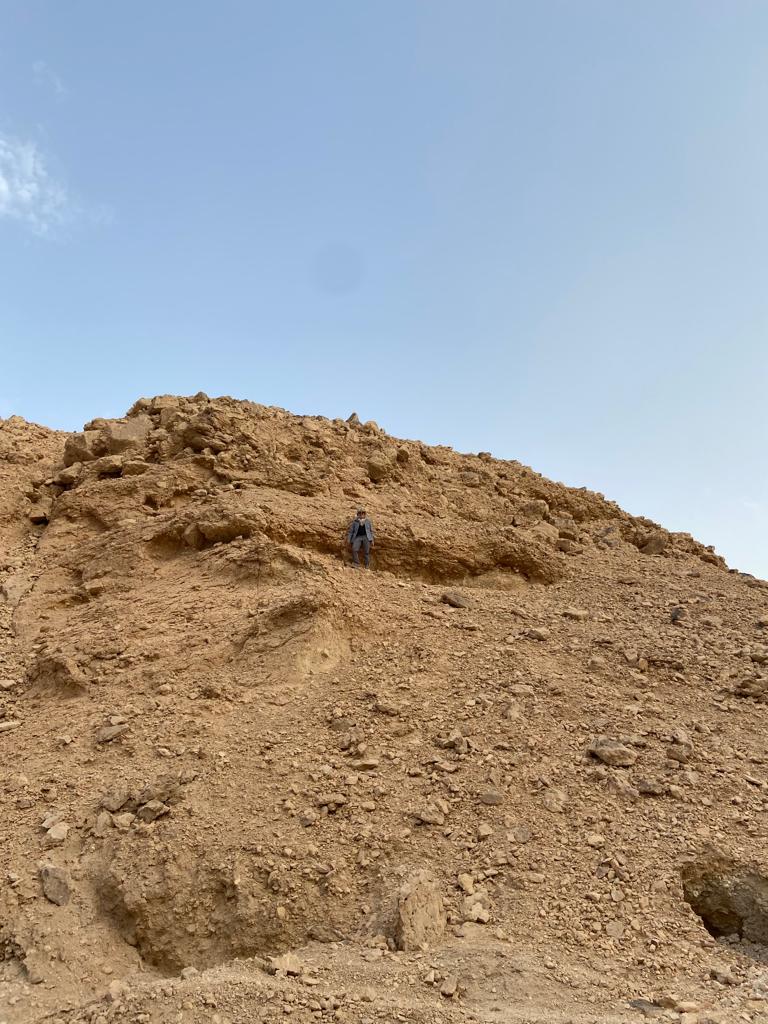
Here we were, driving fast, just us and the desert – racing up dunes, trying to find the sunset in a valley filled with fossils and it struck me that the moment was too perfect to bear. Too perfect to be real. But most important, that it was too perfect to last. That the moment would end, and then we would be back on the tuk-tuk and back on the boat and eventually back on the plane that back in another house, another apartment, sleeping on another bed in another season watching another sunset and not quite able to ever recapture, ever really remember, what it had felt like to drive across the rocky Sahara and watch the dusty grey sunset. That once the moment passed, and it would have to, I would never quite remember it right.
Could it only have been two weeks ago?
I already see it in my mind’s eye, framed like a picture taken two years ago.
But I suppose that’s just the nature of being a tourist.
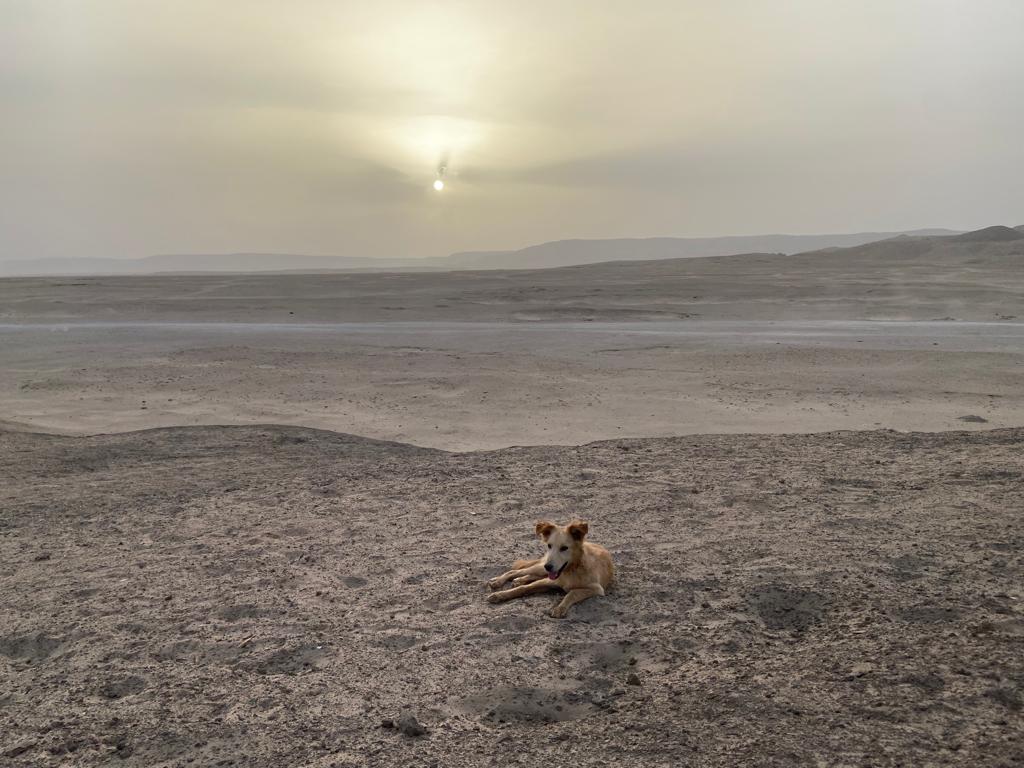
The perfect moments inevitably fade – and long trips, no matter how wonderful, always begin to feel, well, long. Maybe it’s not that you want to go home, maybe it’s that you start wanting some sense of predictability, some sense of routine, some sense of stability. Maybe you’re tired of how X place smells, or tired of not being able to eavesdrop on people’s conversations on the bus, or maybe you miss that fruit you can’t seem to find here or the way that place down the street bakes their bread. Whatever it is, no matter how beautiful and lovely the place or places, traveling for awhile begins to wear on the soul.
Now, there are those of us who love to be nomads. I remember, I met another guy from Hawaiʻi in London, the first person I encountered from Hawaiʻi since leaving there on my long, 235-day circumnavigation of the globe. He had been traveling continuously for eight years, working under the table everywhere he went, with no plans to stop. He had premature wrinkles from getting tear gas in Venezuela, and was largely using his time in London to recoup (same as me). Another man I met, when I was visiting Zhangjiajie, was an Italian construction worker living in Australia who traveled half the year, every year. That’s a lot of travel, especially to do alone. I asked him a lot of questions, but it didn’t seem to wear on him, to constantly be surrounded by people he didn’t know speaking languages he couldn’t understand – for him it was sort of one, long party.
While I love to travel, there always comes a point when I am ready to return to some sort of homeland – be it my homebase for a given trip, be it wherever I am in school on the mainland, or be it Hawaiʻi. Last summer, after three months in Central Europe, I was ready to get on with my life in Durham, North Carolina. This summer, after a month in Egypt, I was ready to go to my homebase in Bratislava and a) sleep without the sounds of honking or the call to prayer waking me in the night b) see the color green again and c) return to a place where no one on the street has the slightest interest in me.
As happy as I am to be here, Bratislava, Slovakia is a very temporary home, where I will only be, on and off, for a few months. But then isn’t that the case with Durham, North Carolina, too? Durham is a very temporary home, where I will only be, on and off, for five years. Is Kailua, Hawaiʻi that different, through? In so many ways, Kailua just is a very temporary home, where I will only be, on and off, for my span of 80 years if I live long. The truth of the matter is that
1Lord, you have been our dwelling place
in all generations.
2 Before the mountains were brought forth
or ever you had formed the earth and the world,
from everlasting to everlasting you are God.
(Psalm 90:1-2)
The Lord is the place that God’s people truly dwell. The everlasting God, who is from everlasting to everlasting, is our certain home. And in the face of that our time here on earth is short, and we and our lives are like a dream
like grass that is renewed in the morning;
6 in the morning it flourishes and is renewed;
in the evening it fades and withers.
(Psalm 90:5b-6)
Here, in this world, where we both belong and don’t, we are travelers constantly making temporary homes. Maybe these homes are not as temporary as a hostel, campsite, or a hotel room. Maybe we’re not nomads, like the man I met from Hawaiʻi or the Italian dude. Maybe you have never left your state, your country. You are still a traveler, here in this world – a tourist, here today and a story tomorrow, gone back to your true home.
You know what it’s like for those perfect moments to encroach on life and slink away.
You know what it’s like to both belong in a place and feel like you do not.
You know what it’s like to be weary and just want rest.
You know what it’s like to know that at once, things are so unbearably beautiful and yet so unbearably broken.
You know what it’s like to feel each hour wade by, only to blink and realize months or years have passed.
We are all tourists, here. We live in the paradox of being guests, visitors, and travelers in the very world in which we were made from the dust. From this dust we are made, crafted and formed from earth, and to this dust we will return. Yet even after generations of constantly inhabiting this place, the Earth is not our true homeland.
What would it mean to live like a traveler here and now? What would it mean to take seriously our status as visitors in this world? How would it feel to see our bodies as temples we have the privilege of inhabiting for a time?
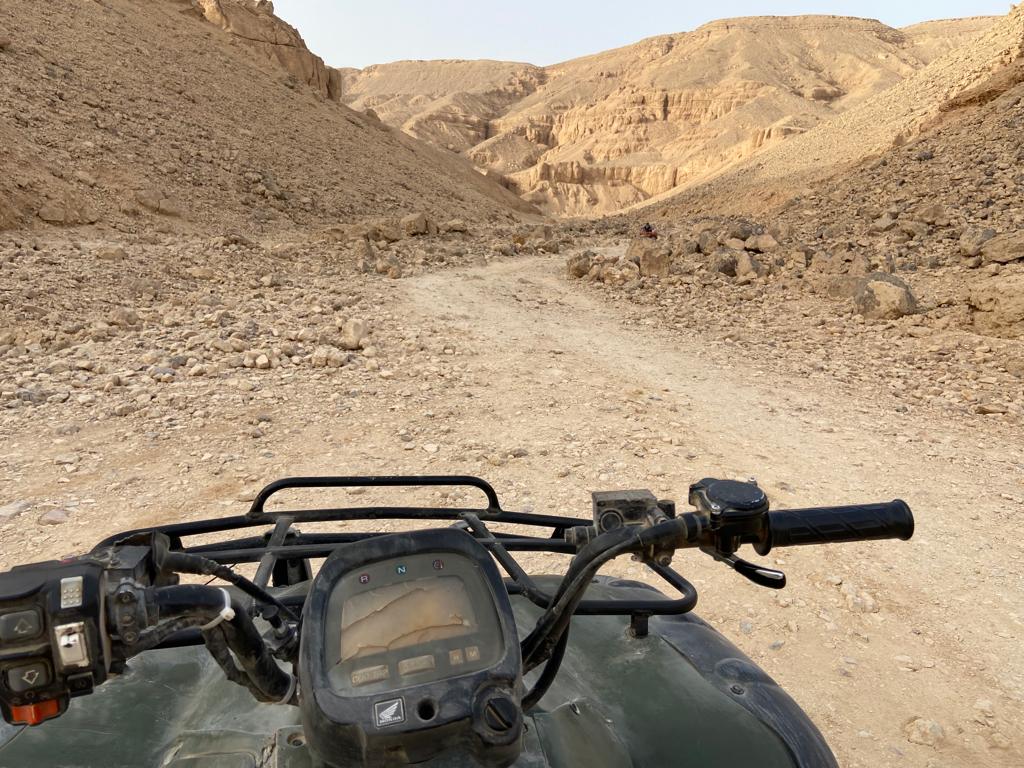
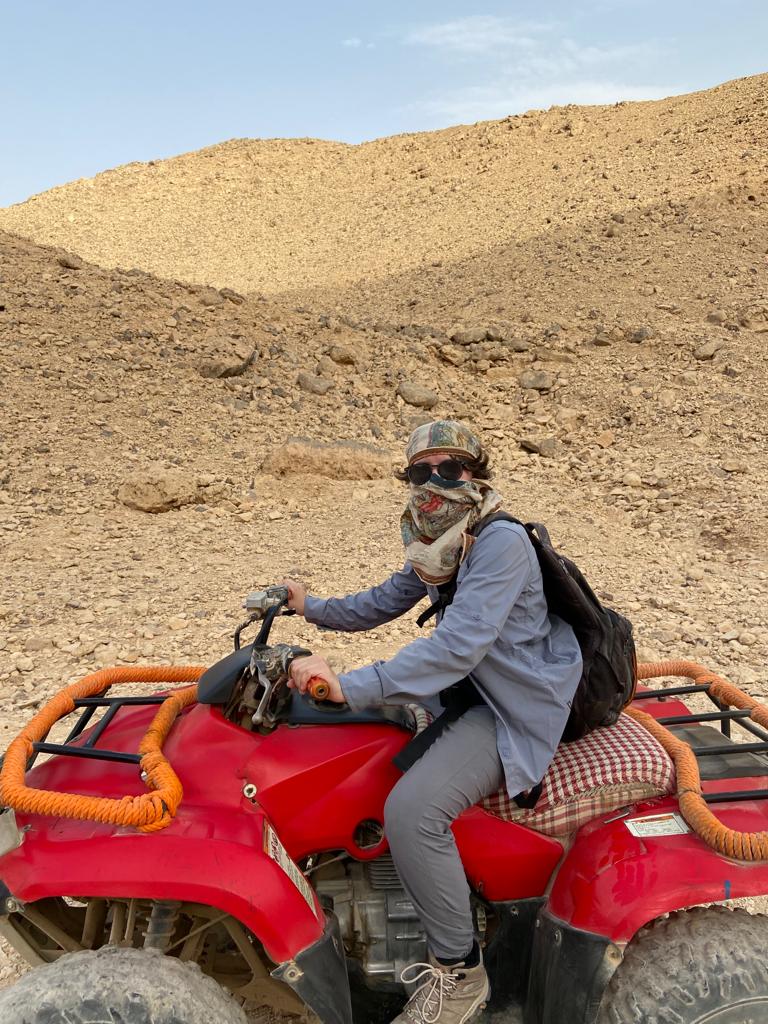
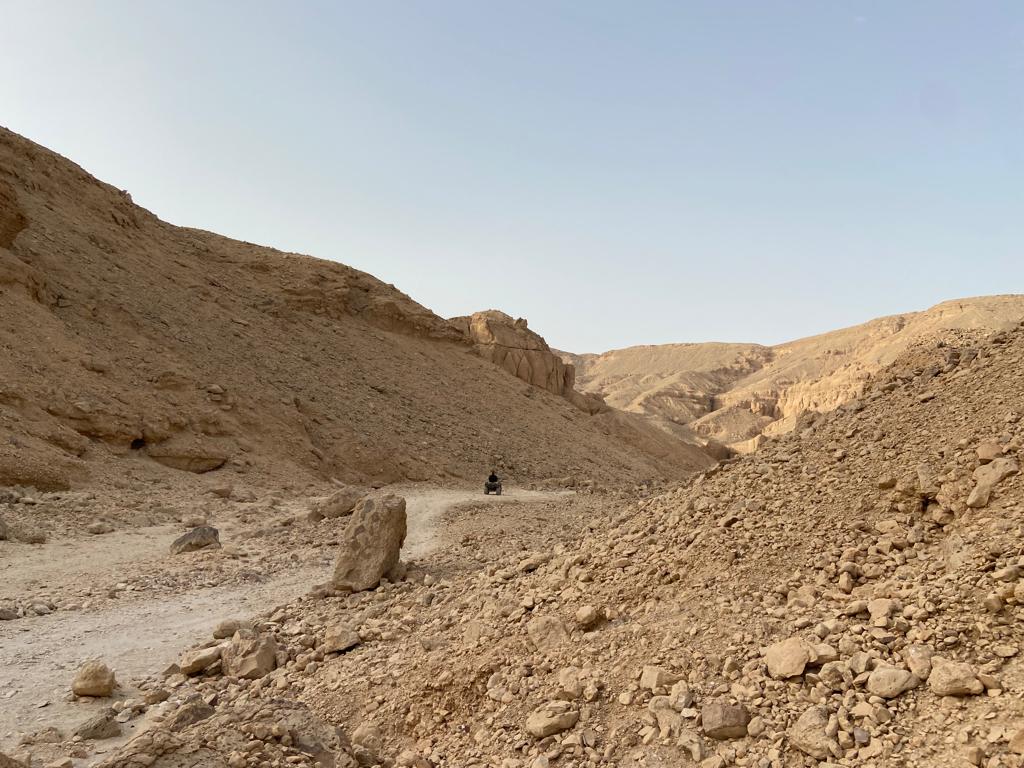
There are moments that seem too perfect to bear.
We parked our ATVs and drank sweet tea on a plateau, waiting for the sun to set. Wild dogs, friendly and used to being fed by the people on the edge of the desert, poked around, begging for food. Bedouin families set blankets on dunes, and settled in. Our guide smoked a cigarette.
I had never seen a sunset quite like this one. I wish I could tell you it was brilliant, but it wasn’t – it was quiet, subdued. The sun was a pale white disk, tiny against the thick grey of the sky. I have never seen the sun look so small and far away. As it sank, closer and closer to the hazy mountains on the horizon, it regained some color, becoming a pale yellow and tinting the whole sky a sandy hue until the finally it set and the whole desert seemed to fade, first to grey then finally to black.
I had never imagined a sunset like that.
And I can’t really remember what it felt like to see it.
But I know that it was beautiful and perfect, in a subdued sort of way.
Leave a Reply